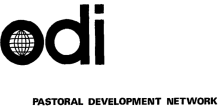Resource information
This paper is concerned with understanding cattle production in Zimbabwe's Communal Lands, in so-called communal farming systems. Although commercial offtake from Zimbabwe's communal cattle herd is low, communal farmers are productive and rational in their cattle herd management. The economic rationale for cattle ownership is firstly to provide draught power and manure for tillage and secondly to provide milk and meat for local consumption, although the role of livestock in the farming system varies significantly from one part of Zimbabwe to another. While cattle have social and cultural functions which are important these are generally secondary to economic functions.It is argued in this paper that the contribution of communal livestock to the national economy in Zimbabwe has not been fully recognised. A model of communal cattle production is presented below which leads to an estimate of the average value of output from communal cattle at just over Z$200 per year per animal. On this basis, the total output from the communal cattle herd in Zimbabwe is estimated to be about Z$800 million (US$250 million) in 1991, representing a very substantial contribution to the rural economy. The analysis has policy implications concerning prospects in the communal areas for: increasing commercial slaughter offtake, control of cattle numbers, cost-recovery for veterinary services, and improved planning and appraisal of veterinary programmes.The remainder of this section considers the characteristics of the communal farming sector in Zimbabwe, emphasising its heterogeneity and the consequent difficulty of making generalisations about it. Subsequent sections examine the various roles of cattle in Zimbabwe's Communal Lands, and then attempt to quantify and value the outputs of communal cattle, leading to an assessment of the contribution of these cattle to the national economy. The final part of the paper examines various policy implications which derive from this analysis.



